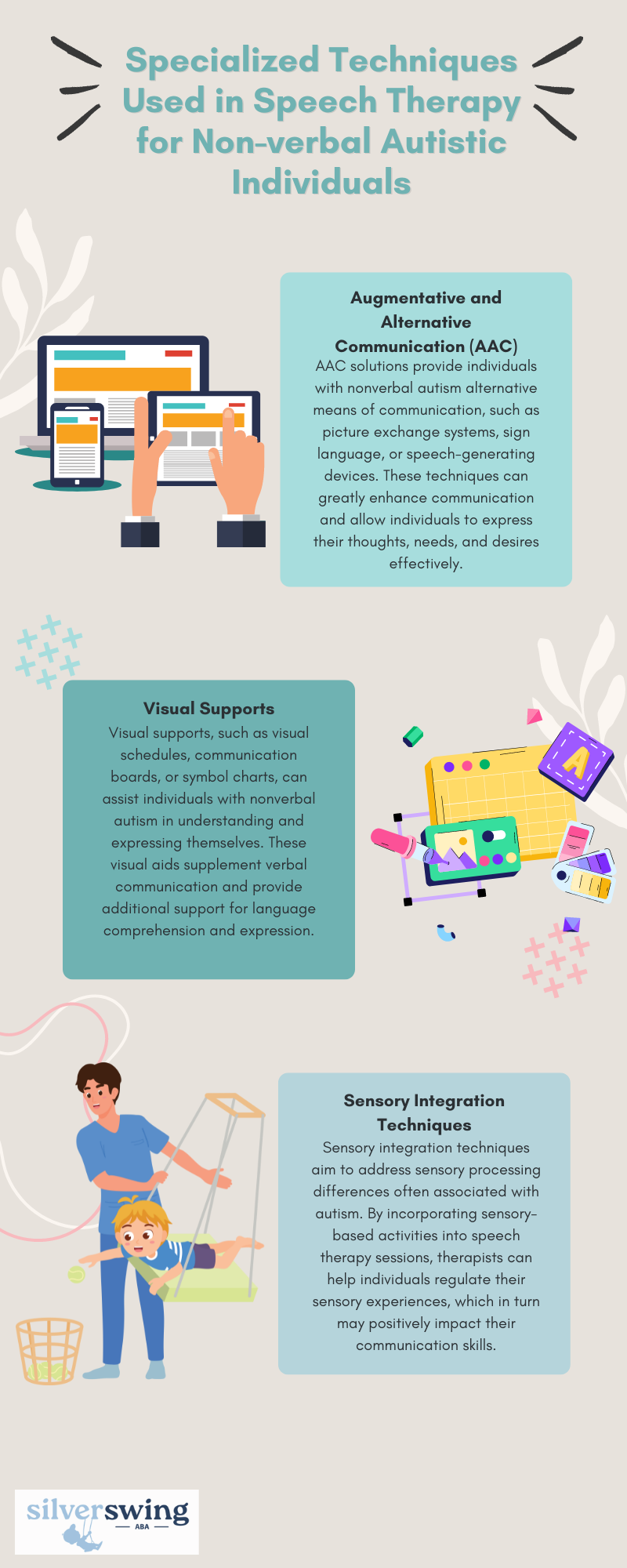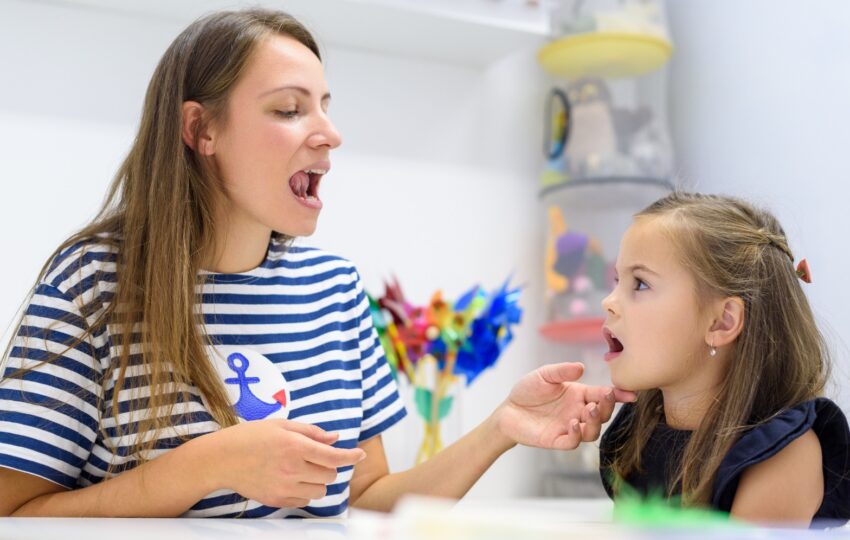Nonverbal autism refers to a condition where individuals on the autism spectrum have significant difficulties with spoken language. Around 25% to 30% of children with autism may not speak at all, experiencing communication challenges and speech delays.
However, it is important to note that being nonverbal does not mean a refusal to speak. It is a condition where individuals may be unable to use spoken language to express themselves effectively.

Signs of Nonverbal Autism
Nonverbal autism can often be recognized by the age of two, although the severity and expression of symptoms may vary among individuals. Some of its most common signs include:
- Lack of Speech Clarity – Nonverbal individuals with autism may have difficulty articulating words and producing clear speech sounds without apparent interference. Their speech may be limited or absent altogether.
- Developmental Delays – Children with nonverbal autism may experience delays in their overall development, including language, social, and cognitive skills. These delays may be noticeable in comparison to their peers.
- Alternative Communication Methods – While unable to rely on spoken language, nonverbal autistic individuals often find alternative ways to communicate. This can include the use of gestures, pointing, sign language, picture exchange systems, augmentative and alternative communication (AAC) devices, or specific words to convey their needs or wants.
- Receptive Language Skills – Some individuals with nonverbal autism may have better receptive language skills and understand what is being communicated to them even if they struggle to express themselves verbally.
It’s important to remember that each individual with nonverbal autism is unique, and the severity of communication challenges can vary. Speech therapy plays a crucial role in helping nonverbal individuals develop alternative forms of communication and express themselves effectively.
By focusing on personalized therapy plans and specialized techniques, speech therapists can make a significant difference in improving communication outcomes for individuals with nonverbal autism.

Importance of Speech Therapy
Speech therapy for nonverbal autism is designed to encourage interactions, build communication skills, and teach alternative and augmentative forms of communication (AAC). Through targeted interventions, therapists work with individuals to enhance their understanding and expression of language, significantly improving their communication abilities.
In speech therapy, various strategies are employed to help individuals with nonverbal autism develop communication skills. These strategies include determining if speaking is a viable option, employing alternative communication methods, teaching them to follow directions, helping them imitate others, and teaching other essential communication skills.
By focusing on these areas, speech therapy aims to provide individuals with the necessary tools to effectively express themselves and engage in meaningful interactions.

Benefits of Speech Therapy
Similar to other types of autism therapies, speech therapy for nonverbal autism is highly beneficial, particularly for children with autism who don’t have an intellectual disability. By focusing on developing communication and language skills, speech therapists can help individuals with nonverbal autism learn to engage, socialize, and communicate effectively.
Through the use of Augmentative and Alternative Communication (AAC) solutions, speech therapists empower individuals with nonverbal autism to express their wants and needs, engage in play activities, and improve speech clarity and sound production.
This not only enhances their ability to communicate but also improves their overall quality of life.
Speech therapy provides a structured and supportive environment where individuals with nonverbal autism can learn and practice essential communication skills. By tailoring therapy to the unique needs of each individual, speech therapists play a crucial role in helping individuals with nonverbal autism unlock their potential and navigate the world of communication.
Tailored Approaches in Speech Therapy
Speech therapy for autistic individuals often includes various approaches tailored to their specific needs. These individualized therapy plans take into account the unique challenges and strengths of each individual with nonverbal autism.
The therapy plans may include the following components:
- Visual aids – Visual supports, such as picture schedules, social stories, or visual cues, can help individuals with nonverbal autism understand and follow instructions more effectively.
- Social stories – Social stories are personalized narratives that describe social situations and appropriate responses. These stories help individuals with nonverbal autism understand social cues and develop appropriate social skills.
- Roleplaying – Roleplaying allows individuals to practice social interactions in a safe and controlled environment. This technique can help improve communication skills and promote social engagement.
By tailoring therapy plans to the specific needs of each individual, speech therapists can address the unique communication challenges faced by individuals with nonverbal autism and facilitate meaningful progress.
Specialized Techniques
Speech therapy also employs specialized techniques to foster communication skills and improve overall language development. These techniques focus on alternative and augmentative forms of communication (AAC) to facilitate effective communication.
Some of the specialized techniques used in speech therapy for nonverbal autism include:

These specialized techniques in speech therapy for nonverbal autism focus on developing effective communication strategies, promoting social interaction, and enhancing language comprehension.
By utilizing these personalized approaches, speech therapists can empower individuals with nonverbal autism to engage, socialize, and communicate successfully.
Sources:
https://districtspeech.com/speech-therapy-treatments-for-kids-with-nonverbal-autism
https://stamurai.com/blog/nonverbal-autism-speech-therapy
https://vozspeechtherapy.com/how-can-a-speech-therapist-help-nonverbal-autistic-children
https://www.healthline.com/health/autism/speech-therapy-for-autism
https://www.speechease.net.au/our-voice/speech-therapy-for-non-verbal-autism




